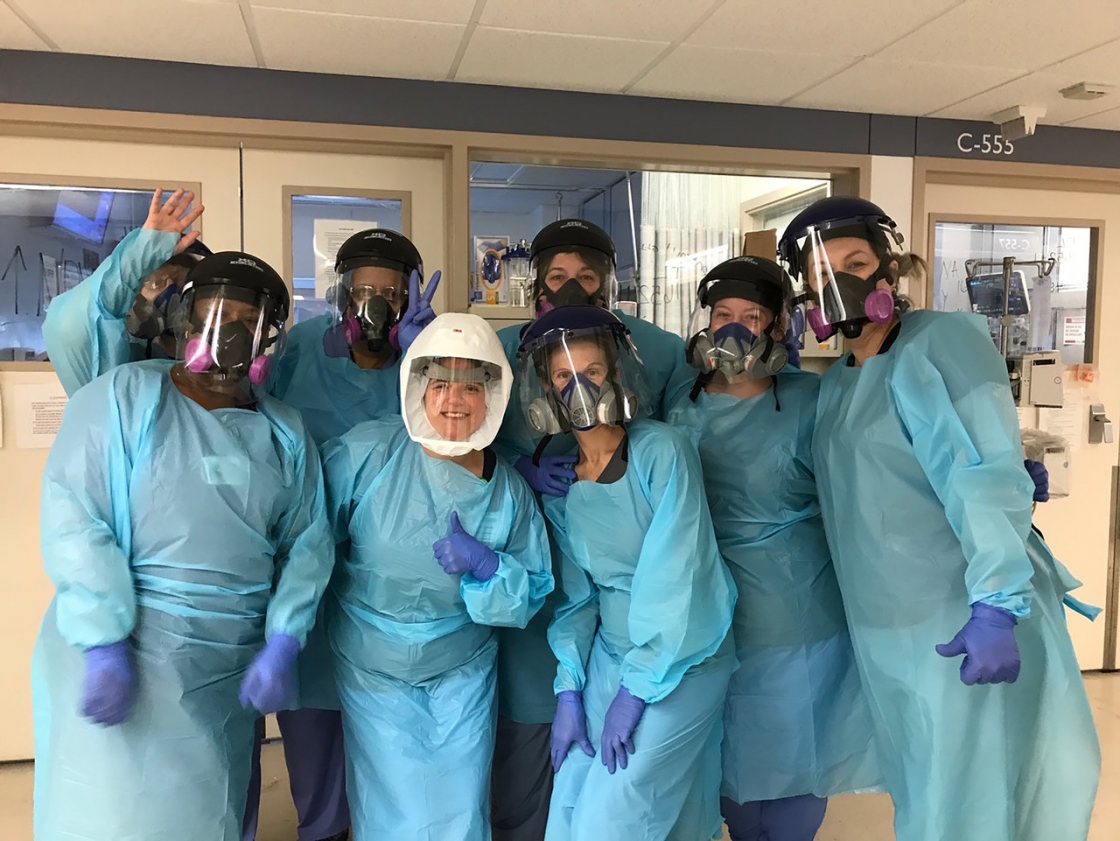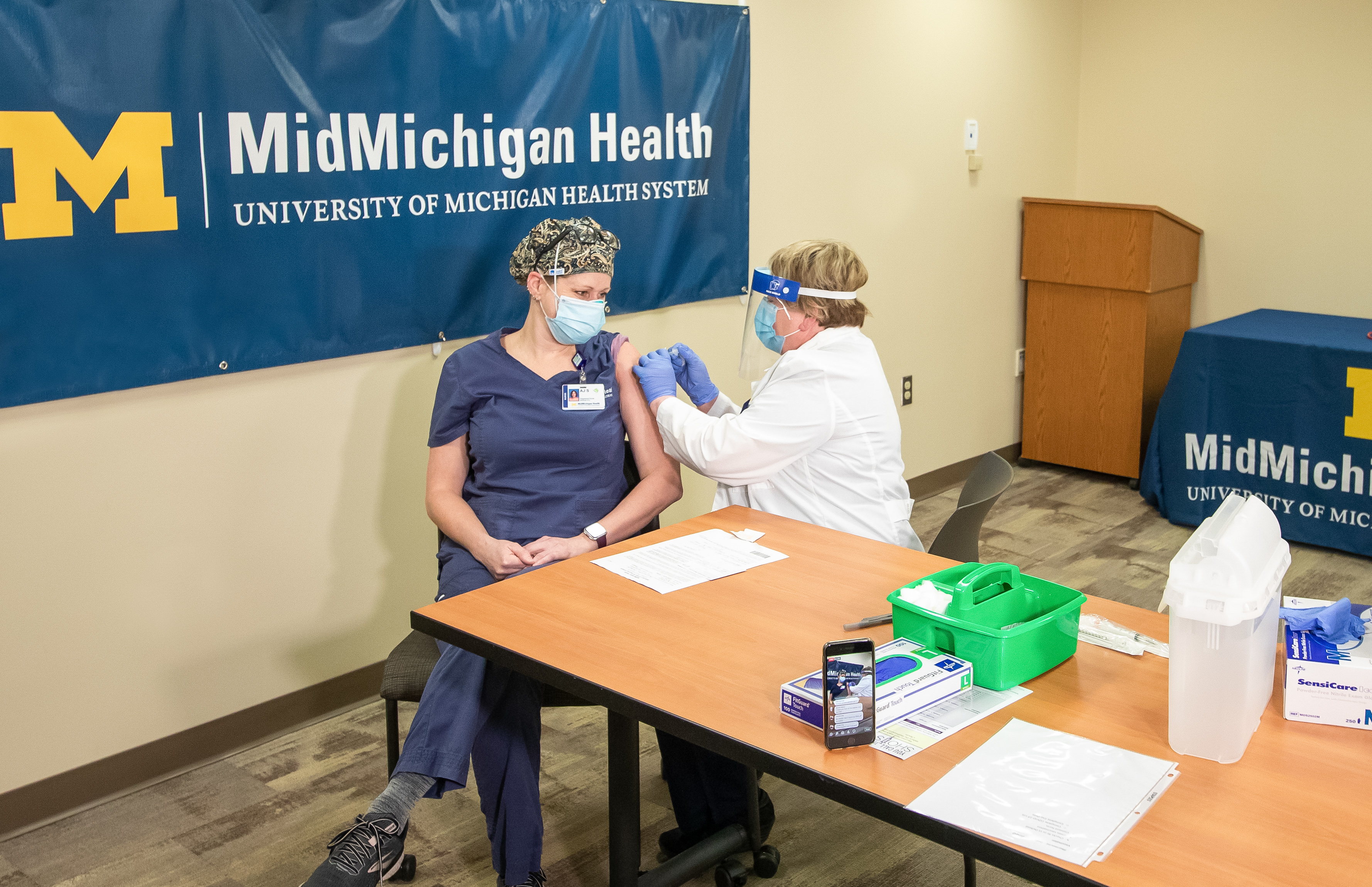
Inside Michigan hospitals, a ‘crushingly hard’ week in coronavirus fight
This story originally appeared in Bridge Magazine. Photo courtesy of Dr. Rana Awdish, Henry Ford Health System. See the full story here.
In the worst week yet in the coronavirus pandemic for southeastern Michigan, when the death toll climbed to 540 statewide and 14,225 were sickened by the virus, health care workers shared their stories of courage, fear and despair.
They talked about the anguish of going to work each day not knowing whether the patients they cared for the day before survived the night.
They hold the hands of the sick, comforting them as they take their final breaths without a loved one nearby, and then have to break the news to their families over the phone or via video chat that COVID-19 took their husbands, wives, sisters, brothers.
“There’s a growing number of them who aren’t going to make it and they are absolutely alone,” said Maureen Biddinger-Grisius, a registered nurse at Beaumont Hospital in Farmington Hills, who, in an interview with MSNBC’s Stephanie Ruhle, shared a painful reality of the visitor ban that hospitals have instituted to curb the spread of the virus.
“It’s heartbreaking as a nurse to know that you are that person’s everything and, sometimes, in their last moments,” Biddinger-Grisius said, speaking somberly with the anxiety of recent days on her face. “The weight of trying to fill the shoes of the people who can’t be there is really heavy.”
Then, they go home to their own families, terrified they’re bringing home a contagion that can’t been seen and that doesn’t make itself known until it’s too late and they’re infected — and so are the people they love.
One nurse — Lori Key at St. Mary Mercy Livonia — found solace through the heartache in song, singing “Amazing Grace” to her patients.
Others found hope in seeing a whiteboard that keeps a running total of COVID-19 patients who’ve come off mechanical ventilators and how many who’ve been discharged from the hospital to recover at home.
They were buoyed by seeing patients who were very sick, who had all the odds against them getting better.
Some health care workers say they feel paralyzed by fear about the shortage of personal protective equipment like masks, gloves and gowns, and don’t know how they can continue to work without getting sick, too.
“You walk in every day because you have a job to do,” said Jeff Morawski, a cardiac cath lab nurse at McLaren Macomb whose first shift in the intensive care unit was Friday night. “You don’t know what you’re walking into, and you don’t know if you’ll be able to walk away without being sick, yourself.”
Dr. Rana Awdish, a critical care physician and medical director of care experience for Henry Ford Health System, said she and many of her co-workers have taken to rituals that help them manage the stress of that worry.
“I have switched to only wearing scrubs,” said Awdish, who wrote “In Shock,” a memoir based on her own critical illness that calls for more empathy in medicine. “I have only one pair of shoes that I wear at the hospital.”
She enters her home through a side entrance by the washing machine, where she strips down at the end of each shift.
“I put my clothes right in the laundry and I strip everything. I have hand sanitizer and a sink there,” said Awdish, who lives with her husband, Randy, and their son, Walter. “So, I wash my hands. I walk straight to the shower and I take a shower and put on clean clothes.
“Even doing that doesn’t feel sufficient. But it’s all that I’m able to sacrifice right now. I’m not ready to live in a separate building from my family. I feel like I’ve given up enough to this virus and I’m just not willing to give up seeing my family, too.”
Read the full story at bridgemi.com.


